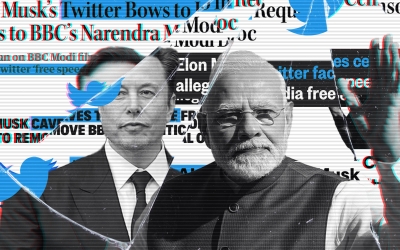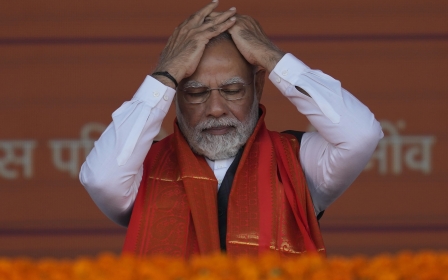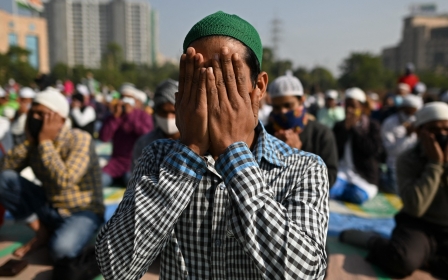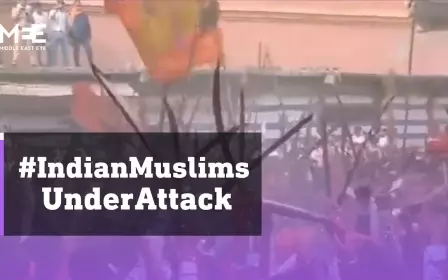Sunak's refusal to defend the BBC against Modi is a threat to free speech
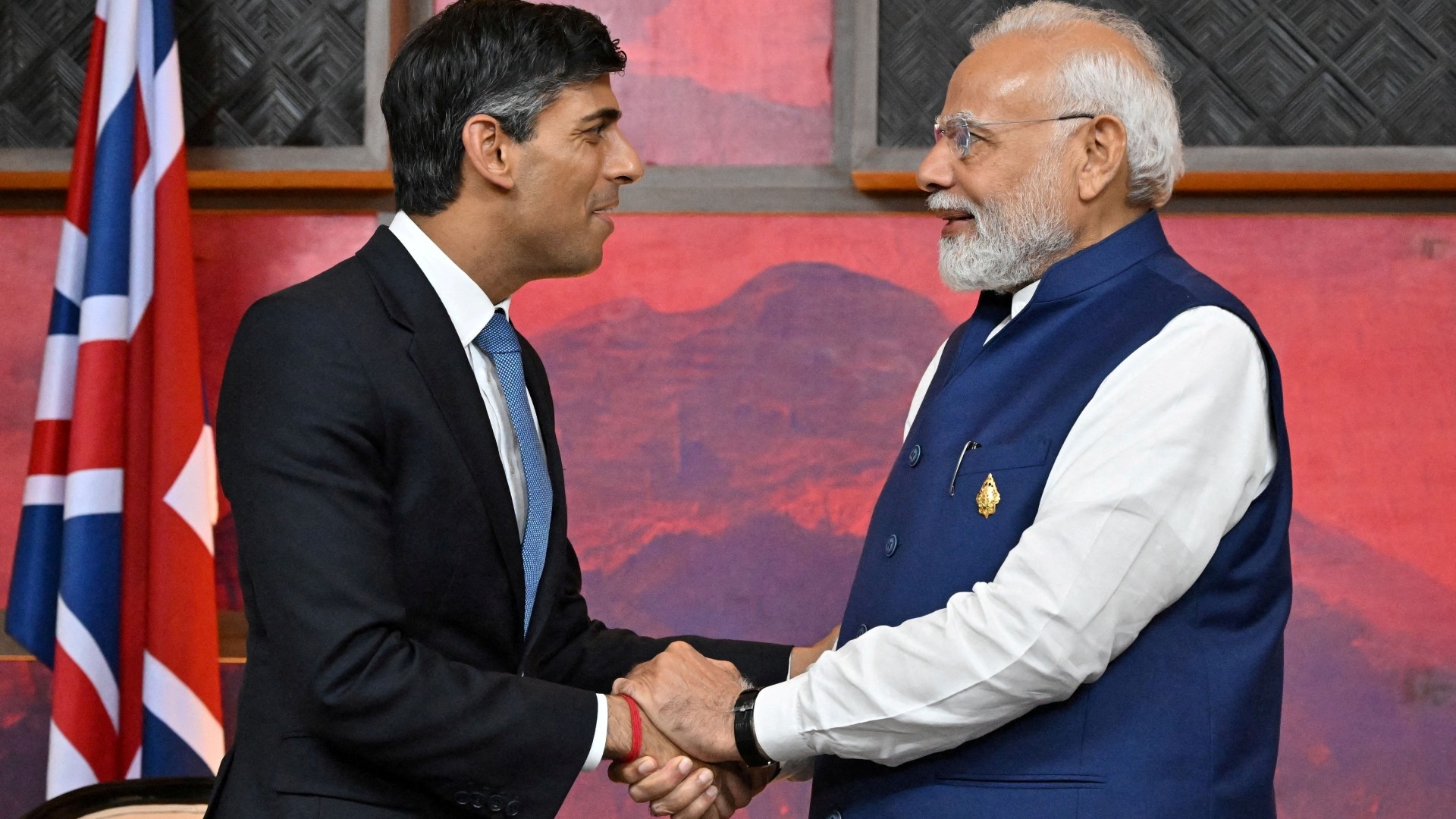
In recent weeks, UK Labour party leader Keir Starmer has opened up a cruel new attack line against Prime Minister Rishi Sunak.
That line says that Sunak is hopelessly weak, that he’s not big enough for the job, and that he’s too slow to deal with bullies. Time after time, Starmer drives these attacks home at Prime Minister’s Questions.
Shockingly, neither Sunak nor his government has lifted a finger to defend the BBC from the Indian prime minister's assault
Over the past few weeks, a new bully has appeared on Sunak’s horizon - Indian Prime Minister Narendra Modi. And Sunak isn’t standing up to him either.
Modi’s government in India is renowned for brutal attacks on the country’s media. So much so that in 2022 an international media watchdog ranked India 150th out of 180 countries in its index of press freedom. Now the Modi government has turned its fire on the BBC, Britain’s national broadcaster and one of the most respected news organisations in the world.
Shockingly, neither Sunak nor his government has lifted a finger to defend it from the Indian prime minister's assault.
New MEE newsletter: Jerusalem Dispatch
Sign up to get the latest insights and analysis on Israel-Palestine, alongside Turkey Unpacked and other MEE newsletters
'Hostile propaganda'
Modi is furious with the BBC because in late January it released a two-part documentary on his relationship with India’s 200 million Muslims.
The first episode focused on the 2002 anti-Muslim pogrom in the western state of Gujarat. The violence, which happened when Modi was Gujarat's chief minister, saw more than 1,000 people killed.
The BBC documentary revealed that a British government report found Modi “directly responsible”. Although it was aired only in Britain, and featured interviews with members of India’s ruling BJP party who defended Modi, the Indian government’s response was ferocious.
It banned the documentary and called it “hostile propaganda and anti-India garbage”. It ordered YouTube and Twitter in India to block it on their platforms - and they seem to have complied.
When students at the prestigious Jawaharlal Nehru University tried to screen the documentary, the administration turned off the electricity and internet access. At Delhi University, 24 students were detained by the police for trying to screen it.
Throughout all this, neither Sunak nor his ministers said anything.
In parliament, a Labour politician asked Sunak about the documentary. The prime minister made no attempt to defend the BBC. Instead, he replied that he did not “agree at all” with the BBC’s characterisation of Modi.
Just weeks later, the Indian government launched a brazen attack on the BBC. On 14 February, over a dozen officials from the Indian government’s income tax department arrived at BBC offices in Delhi and Mumbai to carry out a three-day tax raid, or a “survey” as the government calls it.
The Ministry of Finance then accused the BBC of tax evasion.
Incredibly, though, there has been no statement of concern or condemnation from Sunak at this blatant harassment, no public defence of the BBC from the UK government. Astonishingly, the British High Commission in India, which is reportedly monitoring the situation, has not issued a statement.
'Harass and intimidate'
Within India, many individuals and organisations have spoken up for the BBC.
"The Indian authorities are clearly trying to harass and intimidate the BBC over its critical coverage of the ruling Bharatiya Janata Party,” said Aakar Patel, chair of Amnesty International India’s board. "The overbroad powers of the income tax department are repeatedly being weaponised to silence dissent."
Media watchdog Reporters Without Borders took the same view. “These raids have all the appearance of a reprisal against the BBC for releasing a documentary critical of Prime Minister Narendra Modi three weeks ago,” it said in an official statement.
Narasimhan Ram, former editor-in-chief of the Hindu, called it an attempt at “censorship” and suggested it “could be a little bit of revenge”.
A spokesperson from India’s ruling party responded to the tax raid by calling the BBC the “most corrupt organisation in the world” and accused it of “venomous, shallow and agenda-driven reporting”.
Yet the Sunak government won’t lift a finger to stand up for one of Britain’s most cherished and admired international organisations - and the principle of free speech.
And this matters a great deal to Indian journalists brave enough - and it can take great bravery - to criticise Modi.
They are intensely concerned because they think that the attack on the BBC could set a precedent for further assaults on press freedom. After all, if an internationally respected organisation like the BBC can face intimidation, which Indian media outlet is safe?
Risk of emboldening Modi
The silence is deafening. It is also deeply unusual. After China banned the BBC in 2021, then-Foreign Secretary Dominic Raab declared the move to be “an unacceptable curtailing of media freedom”.
And when concerned about “increased propaganda from the Russian state” in 2022, the UK government gave the BBC £4.1m (over $5m) to “fight Russian disinformation”.
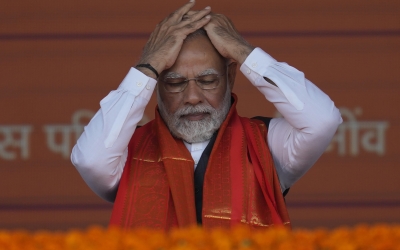
Yet on India, there is no sign that the government cares. It is not just Sunak who has been inert. Foreign Secretary James Cleverly is a self-styled champion of free speech and expression. But he doesn’t speak out about this brutal attack on a great British national institution in India.
Ram called Sunak’s silence “disgraceful”. "If something like that happened to an Indian institution in the UK, would not the Ministry of Foreign Affairs or the prime minister's office come out with a statement of concern? I think they would,” he said after the tax raid began.
“So the UK government - I think this is a pathetic response, or a non-response, to something which is very serious that's happened, that all these allegations are suddenly being hurled against a highly respected national institution, which is really an international institution today.”
The Sunak government risks emboldening Modi in his authoritarianism at a pivotal moment in India’s history, with experts warning that Indian Muslims potentially face genocide.
Indian journalist Karan Thapar, speaking about the attack on the BBC, said that the "damage that has been done is to our country, to our country's reputation, to our country's standing as a democracy, and that means that the damage has been done to something that matters to all of us as Indian people”.
It’s hard to think of a previous British prime minister who would allow a foreign power to trash free speech and attack a British institution in this way. It’s tempting to reflect that Starmer is right and Sunak isn’t up to the job.
The views expressed in this article belong to the author and do not necessarily reflect the editorial policy of Middle East Eye.
Middle East Eye delivers independent and unrivalled coverage and analysis of the Middle East, North Africa and beyond. To learn more about republishing this content and the associated fees, please fill out this form. More about MEE can be found here.



